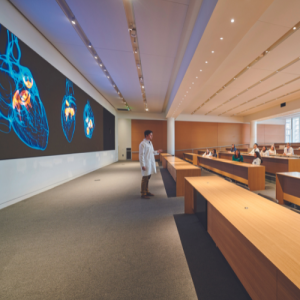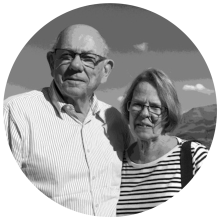Fresh off the commencement stage with degrees in chemistry and economics from Ohio Wesleyan University, Michael Wise had his sights set on an MBA from the University of Michigan.
But the U.S. government had different plans.
Like legions of his 1960s-era peers, Wise was denied an extension from his local draft board. Knowing what was likely coming next, Wise enlisted in the United States Air Force, eventually becoming an officer. After six years in the military, including a year in Vietnam, Wise discovered his calling—a career in medicine.
“I had friends who were in medical school at Case Western Reserve,” Wise recalled. “I was so impressed by the way medicine was taught there. The way the curriculum was set up is the way medicine should be taught.”
Starting out in internal medicine, Wise quickly realized he wanted to spend more time with patients and took a residency in psychiatry. Eventually, he integrated the two—working with medically ill patients with psychiatric issues—en route to becoming a consulting psychiatrist. Wise also wrote and edited the first two textbooks on treating the medically ill with psychiatric issues.
Nearly 50 years since graduation, and with a successful and fulfilling career behind him, Wise, MD (MED ‘76), and his wife, Elizabeth, have established a scholarship program for medical students at Case Western Reserve.
After an initial $2 million estate commitment in 2015, the couple recently pledged an additional $1 million to their scholarship fund. They hope their contributions can help students gain an education less encumbered by fiscal strain.
“I was the first in my family to go to college,” he said. “And I had the good fortune that the Air Force paid my way through, leaving me without the financial burden so many others have.”
When asked about the consideration he and his wife gave to helping aspiring medical students—who stand to benefit the same way he had—his advice to others was simple.
“Do it!” he said. “For me, the way CWRU taught medicine made the most sense. I was able to thrive in that environment without the burden of debt.
Originally published in the summer 2023 issue of Forward Thinking magazine



